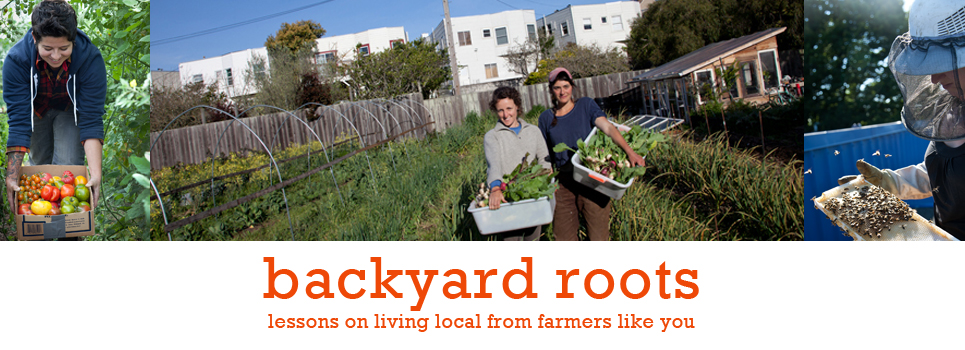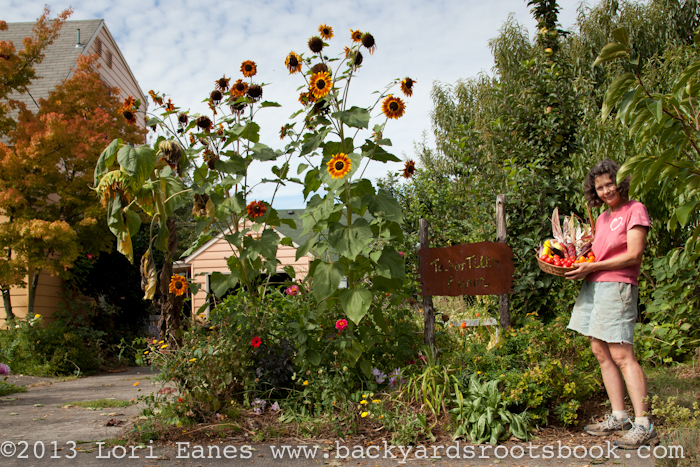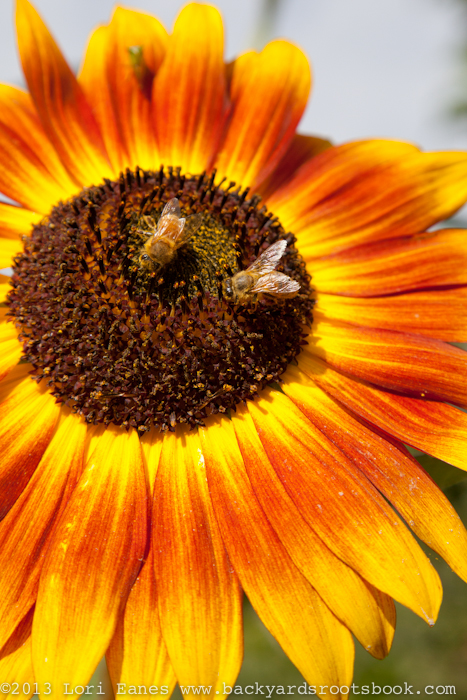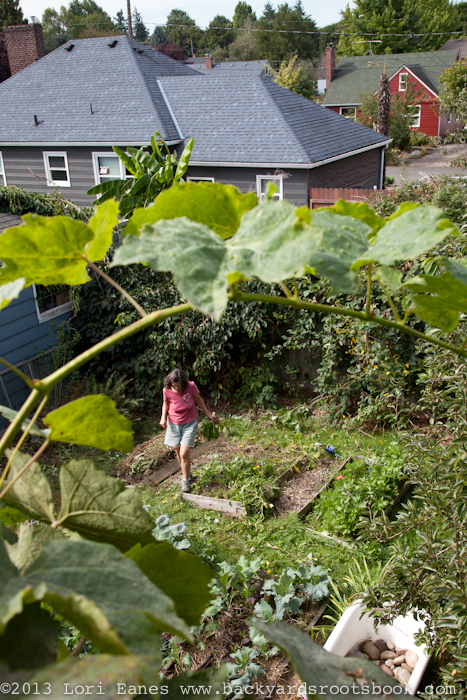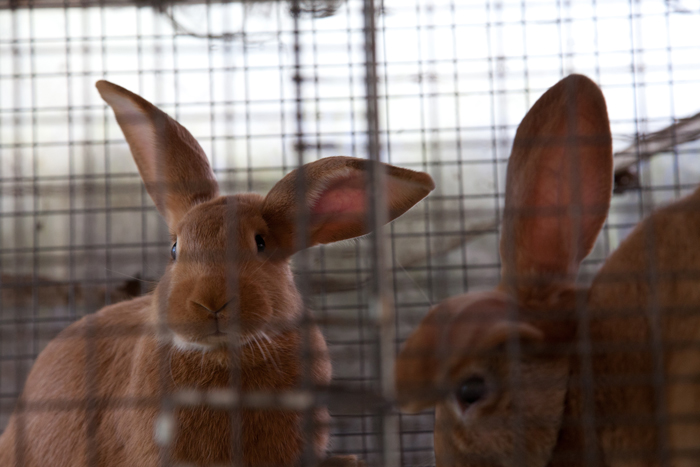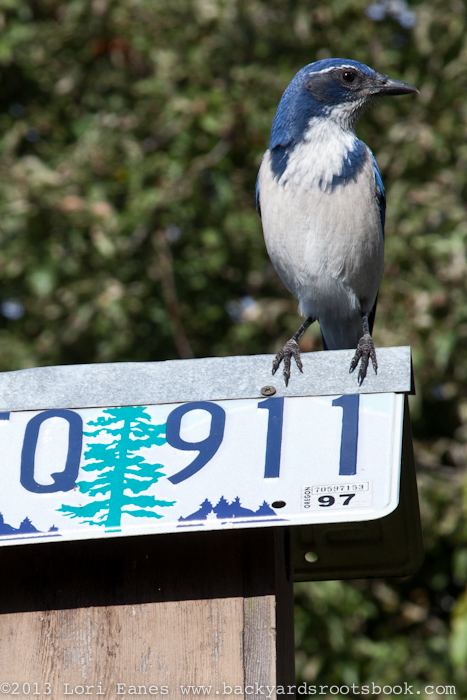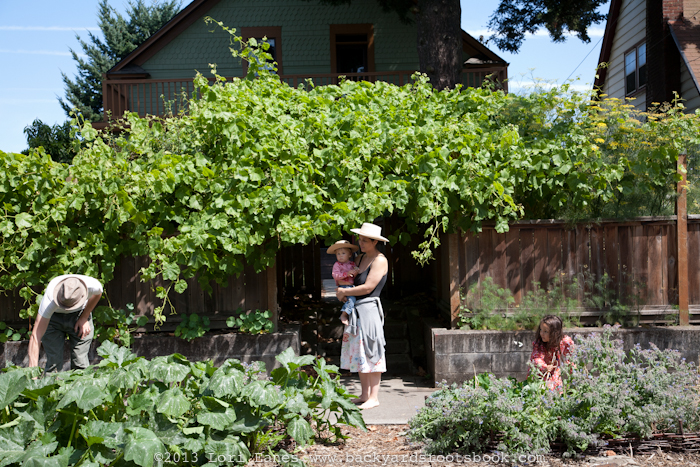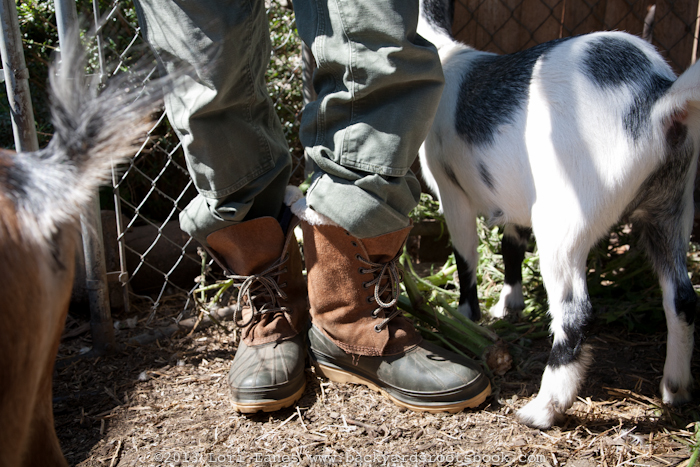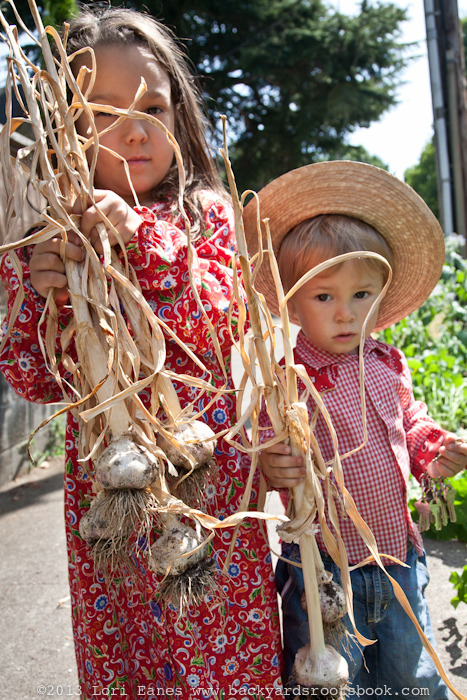Connie Van Dyke’s Tabor Tilth Farm is practically a permaculture institution. She began teaching permaculture back before anyone really knew what it was including her. As a gardening teacher in the early nineties, she was asked to teach it at a local community college. “The best way to learn something is to teach it” she says, and it’s led to a “fun journey”. As a life-long gardener, and an environmentalist as she learned permaculture, her yard got radical. She says gardening traditionally relies on chemicals. With permaculture her garden is chemical free. She makes her own compost, so she doesn’t need fertilizer. She manages pests organically and grows 60 to 70% of what she eats. She raises meat rabbits for protein and bartering and she now spends less than $75 a month on additional groceries.
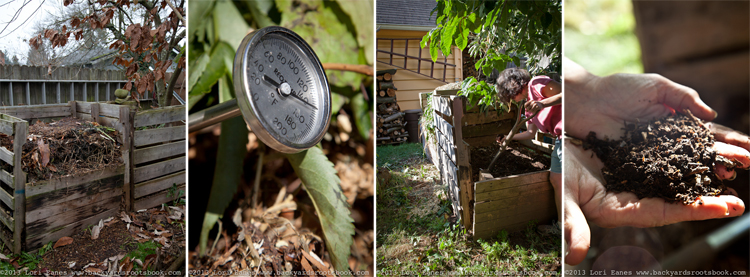
Connie’s double sided compost bin is made from re-purposed pallets screwed together. She uses a compost thermometer to check progress (temperature needs to reach 150 F to kill pathogens) and she composts for a full year.
“One of the first principles of permaculture is to take care of the earth,” she says. “If I could teach people to do one thing, it would be to build the soil”. She has a large double compost bin in her yard. She composts all yard waste, vegetable trimmings and even human waste. She says adding humanure is a political act that is her way of saying she won’t pollute drinking water. It’s easy to do, she says, you just use a bucket within a bucket that she fills with woodchips. The top bucket is has a toilet seat attached. To make sure there are no pathogens she composts for a full year checking the temperature periodically to be sure the heat gets up to at least 150 degrees. She doesn’t turn the compost, she says she lets nature do the work. With permaculture waste is a resource, everything she composts goes back in the soil.
Van Dyke’s south Portland lot is only 1/5 of an acre but it’s planted intensely. A messy, eclectic garden, it’s packed with life. It has over 50 small fruit and nut trees including several varieties of apples that ripen at different times so she can harvest them from July to February, as well as pears, plums, mulberries and paw-paws, one of the only native North American fruit trees. Planting the trees in the optimal place is important, especially when you don’t have a lot of space. She grows walnut trees along the sidewalk. They’re perfect there because they are allopathic. They put out chemicals that prevent other plants from growing under them. She says fruit trees only last around seven years in Portland because fungus is such a problem and she won’t use fungicides. She is constantly phasing out older trees and planting younger. She transitions trees gradually, planting new ones near the old ones, pruning the older ones back while the newer one grows.
With permaculture, the design is key. Taking in consideration the existing conditions, the functions, the activities and the natural eco system, Van Dyke has optimized her yard. Her winter vegetables are in the front facing facing east where they get the most sun. She has six raised beds in the back. She mixes flowers and vegetables throughout the yard to encourage pollinators. Along her south wall she’s built a passive solar greenhouse that stays cool in the summer and helps warm her house in the winter. She uses it to dry seeds and start seedlings. You can learn more about Connie’s Tabor Tilth backyard farm here.
